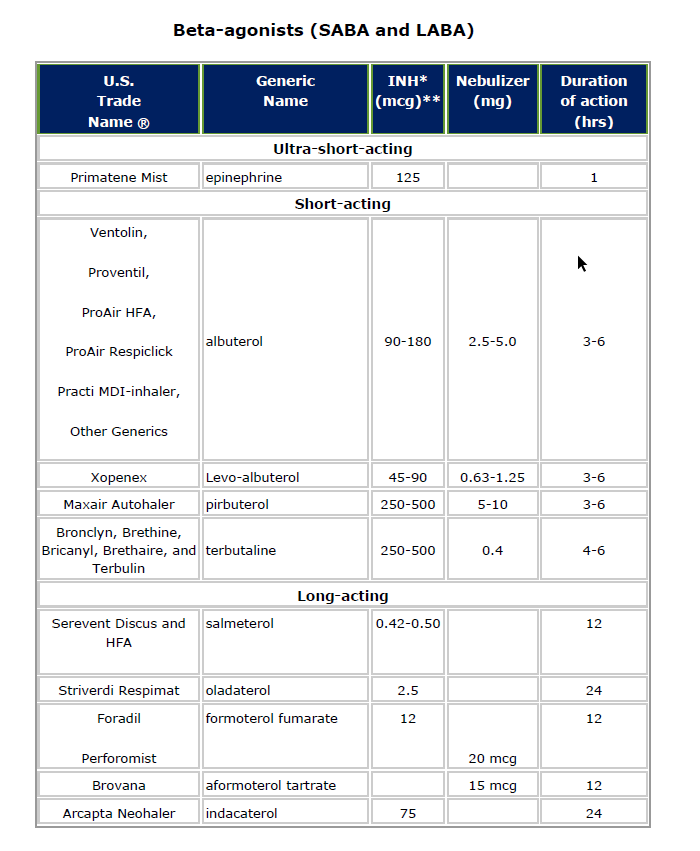Beta-agonists are a type of bronchodilator. They open your airways by relaxing the surrounding muscles. They’re like epinephrine, a hormone that gives you a surge of energy when you’re scared or excited.
Download Beta-Agonists (SABAs and LABAs) as a PDF.
Beta-agonists come in many forms. However, you usually take them with an inhaler or nebulizer. Inhaling them into your airways is the preferred method. That’s because it reduces the chance of systemic side effects.
Possible side effects of beta-agonists include:
- Shaking and trembling
- Rapid heart rate
- Dizziness
- Anxiety
Using short- and long-acting bronchodilators
Short-acting bronchodilators open up your airways in 5-15 minutes. And, they can keep them open for 4-6 hours. They come in two forms:
- SABAs or short-acting beta-agonists. For example, albuterol.
- SAMAs or short-acting muscarinic antagonists. For example, ipratropium.
Your doctor may prescribe a SABA/SAMA combination. For example, CombiventTM or DuonebTM. You can use these combos:
- on a regular basis
- as “rescue” drugs when you exercise
- during allergy season
Long-acting bronchodilators last for 12-24 hours. However, it can take up to 30 minutes to feel their full effect. They include long-acting beta-agonists (LABAs) and long-acting muscarinic antagonists (LAMAs). Many inhalers contain combinations of long-acting bronchodilators. Using them on a regular basis helps keep your airways open day and night.
Beta-agonists

For more in-depth information on this topic, please visit the Big Fat Reference Guide (BFRG). If you are enrolled in AlphaNet’s Subscriber Portal, you can access the BFRG here.
Download Beta-Agonists (SABAs and LABAs) as a PDF.

